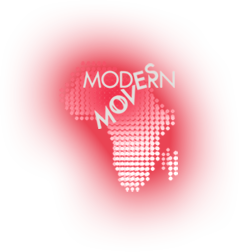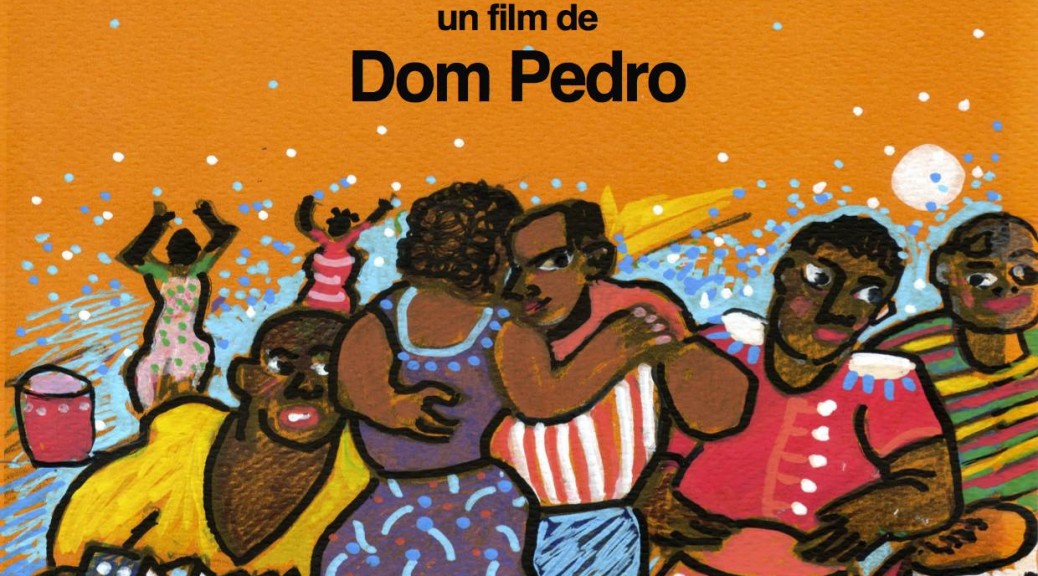I am the research administrator of Modern Moves, and I also administer two other ERC funded projects at the Department of English, KCL. Originally from Estonia, I have a PhD in Linguistics, and have studied at the University of Tartu in Estonia, the School of Oriental and African Studies in London and Universität Leipzig in Germany. I have led several publicly and EU funded projects at Tallinn University and the Estonian Integration Foundation, which dealt with researching and enhancing the quality of minority students’ language education. As a linguist, I have also published studies on Estonian syntax and language education. I enjoy being part of Modern Moves, not least because I have had a taste of African linguistics and because working in Ghana as a volunteer I developed a great interest in African cultures and languages.
Archives
Leyneuf Tines

Leyneuf Tines is a performer and performance scholar whose work explores memory practices and diaporic subjectivities. By activating the kinaesthetic imagination, she explores the politics of migration, ancestral histories and determined spirits to formulate new ‘transpostcolonialities’. Working at the crossroads of political reality, postcolonial imaginations, expressive cultures and ritual processes, she collects superstitions and rituals in order to re-write the ‘body’. Her practice and writing is informed by the poetics of spirituality, mythology, and rhythm cultures. She devotes herself to reinstigating embodied consciousness of the uprooted and colonized body to understand new forms of post trauma, diasporic beings and the postsovereign body.
As part of the Modern Moves team, her PhD thesis, Vodou Temporalities: Haiti, Rhythm and Afro-diasporic Imaginaries, examines Haitian vodou as a point of departure from the past and present, and as a parallel reality for Afro-diasporic subjects from which we may meditate on Haitian and Afro-diasporic futures. Vodou beliefs and practices manifest themselves through embodied repertoires and cultural imaginaries, which in turn form a subjectivity and collectivity that are able to sidestep a compulsory narration conducted within a linear temporality conceived of as progressive and Western within constructions of modernity. Illustrating the key role of rhythm and vodou in the construction of Haiti’s blackness, her thesis demonstrates this blackness as an inauguration and complication of modernity. She therefore examine the embodied expressions of vodou and its rhythm cultures as manifestations of diasporic diffusions in space and as a synthesis and mutation of traditions through time. Vodou rhythms map and contest a historically premeditated idea of “blackness” in Haiti, thereby serving as apertures through which Afro-diasporic futures can be formed. This approach allows the emergence of what has been articulated by Gina Ulysse as necessary “new narratives” for Haiti.
As an infinite scholar of the body in all its forms, she wants to understand new forms of trauma, diaspora and the body through constant innovation. Apart from this, she’s obsessed with music and dancing.
Madison Moore
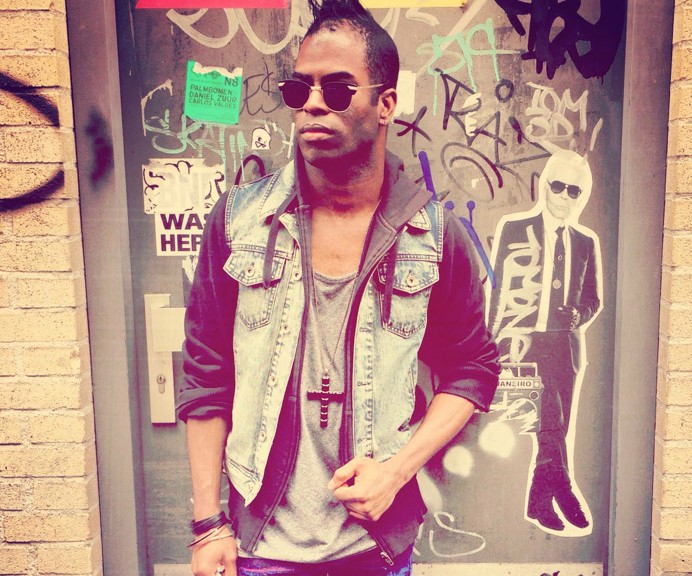
I earned the PhD in American Studies from Yale University in December 2012 with a focus on performance studies, popular culture, fashion and music. Drawing from contemporary art history and theory, queer studies, popular music and ethnic studies, my dissertation theorized the notion of a ‘fabulous class’ — a modern twist on Thorstein Veblen’s idea of a ‘leisure class’ — which I see as a class of people, usually marginalized, who use the body as a site of artwork and creative agency. The research for that project took me to vogue balls and nightclubs, luxury boutiques and live music performances. All of this meant to address the question: what does it mean to be fabulous?
If I wasn’t working on my dissertation I was probably in New York City at a party — a party in a museum, a party in a gallery, a party in a parking lot, a party in a nightclub, illegal parties on a bridge. I’ve always been a club kid, sneaking my way into New York nightclubs before I was even of age. I love the way people let themselves go on the dance floor, forgetting their daytime persona, sexuality, and mode of self-expression. In grad school I was out so much that (likely jealous) grad students from other programs questioned my seriousness as a scholar. Because of course, being a ‘serious scholar’ and being interested in nightlife don’t go hand in hand — or so the gatekeepers of the ivory tower would have you believe. But this was actually a key learning experience: that’s when I intellectually devoted myself to the power of pleasure, to understanding the critical intervention pleasure makes, particularly for marginalized communities who often make do with what they’ve got. And look fabulous while doing it.
As part of Modern Moves I’m excited to pursue a series of multidimensional projects that consider the theory and culture of the DJ, underground techno and house scenes in Detroit, London, Sao Paulo and Berlin at the very least, underground voguing and house ball scenes around the globe and the connection between the fierce queerness of voguing and other forms of afro-diasporic dance, like Brazilian capoeira. Where nightlife itself is concerned, I love the sound, sweat, and sexuality of a dance floor. So many bodies packed so tightly in one space. I love how we respond to the call, response and thrill of deep, rib-cage rattling bass, that moment where the music stops being a sound and becomes a feeling, an invisible entity in the room. That’s my favorite part about being out: having bass pound its way through our souls as we dance alone together.
Most people don’t know that I’m a classically trained violinist, and that until very recently I was being primed to be a concert violinist. It’s interesting to see how my life long work in music and performance has manifested itself, from Bach to Berghain and from Shostakovich to Frankie Knuckles. As part of the fabulous Modern Moves team I’ll have the amazing opportunity to build my DJ profile and record a techno record, creative projects which will ultimately bring my life full circle if you really think about it.
For more info, visit: www.madisonmooreonline.com
Elina Djebbari
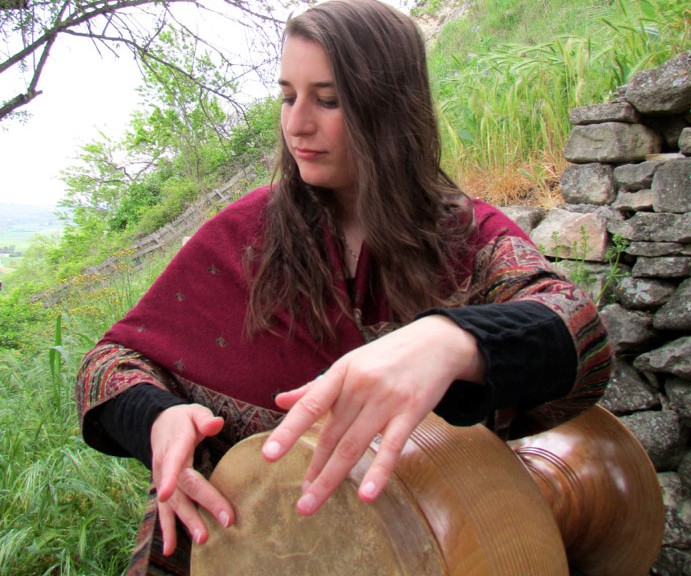
Before receiving my PhD in Ethnomusicology, my first academic training focused on History of Art and Museum/Heritage studies at Ecole du Louvre where I specialised in African Art and Anthropology. Using a very interdisciplinary approach, I strive to consider and link together the historical, political and sociological dimensions of artistic practices, to place myself within and hopefully contribute to a renewal of ethnomusicology and dance anthropology. Before joining KCL in December 2013 to be part of Modern Moves with a new research project entitled ‘The Diaspora Returns: The Reconfiguration of Afro-Caribbean Dance in West Africa’, I was previously member of two international research programmes (ANR GLOBAMUS- Musical Creation, Circulation and Identity Market in a Global Context and FSP Mali Contemporain). My PhD in Ethnomusicology from EHESS (Paris) dealt with national cultural policies and debates around heritage by using traditional music-dance performances in Mali, West Africa, as developed by the National Ballet, private dance companies and the state-sponsored festival “Biennale Artistique et Culturelle”.
I have been practicing West African drums (jembé/dunun) for more than ten years. It is thanks to this musical training that I had the opportunity to go to Mali to learn Malian rhythms and their related dances. To expand the scope of my musical training, I began to learn the Persian zarb (or tombak), the classical drum of Iranian music. I very much enjoy the specific finger technique and the multiplicity of sounds of this instrument and the exhilarating complexity of the rhythms played on it.
Dance is part of my life since my very childhood (modern-jazz, classical ballet, contemporary dance). Later, I discovered many different dance styles, from Bharata Natyam to Ragga-Dance hall/Reggaeton, from both ‘traditional’ and urban (coupé-décalé, kuduro) African dances to the Latin couple dances (salsa, bachata, merengue…).
Being part of this ambitious and thrilling project is both an honour and an exciting challenge.
http://www.kcl.ac.uk/artshums/depts/english/people/academic/djebbari/index.aspx
Ananya Jahanara Kabir
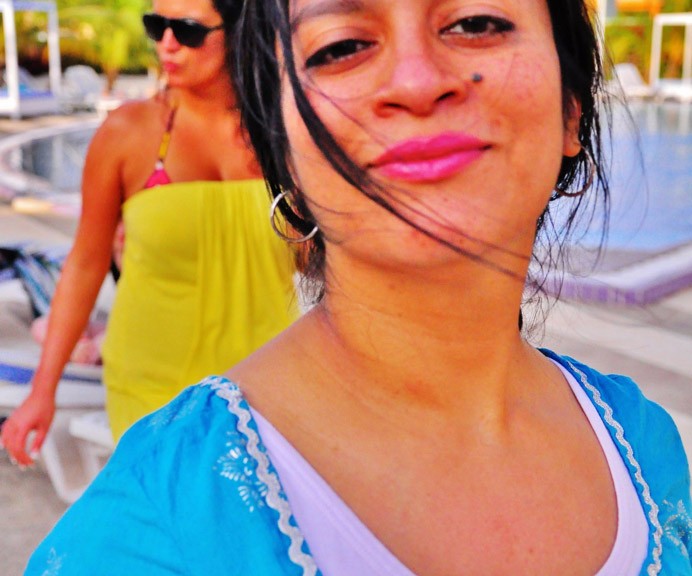
I am a literary and cultural historian who works at the intersection of embodiment, memory, affect work, and post-trauma in the global South, so as to re-examine the regimes and pleasures of modernity. Through Modern Moves, I use the resilience and global impact of Afro-diasporic music and dance, created through the dehumanising mechanisms of colonialism, empire and the slave trade, in order to excavate hidden relationships between modernity, pleasure, and the phantasm of ‘Africa’.
A decade working on collective trauma in contemporary South Asia has led organically to this next step: the study of postcolonial happiness. Nevertheless, I am often asked why I have moved now to the seemingly unrelated realm of Afro-diasporic rhythm cultures. Lurking under this question are often assumptions about race and (af)filiation. How do I, an Indian woman, ‘belong’ to this topic? Does it ‘belong’ to me? Moreover, trained to read books, can I work on music and dance? What about respecting some disciplinary (and other) boundaries?
Boundaries confine us to safe spaces. I left those behind when I arrived in Oxford in 1992 to read for an MPhil in Old English, armed only with a BA in English Literature from Calcutta, some German, some French, and abundant curiosity. My most cherished accomplishment is winning, in 1994, the Turville-Petre Prize for my exam translations of Old Norse poetry. From 1994-1997 I was a PhD student at the Faculty of English and Trinity College, Cambridge, where I moved beyond the Germanic past to the transmission of Christian apocrypha in early medieval Europe. I took up a Prize Research Fellowship at Trinity College in 1997, achieving my PhD in 1998.
While at Cambridge, a mind-opening semester at the University of Berkeley in California, a postdoctoral position at The Centre for History and Economics, and political changes in India catalysed my turn to studying the relation between the colonial past, the trauma of Partition, and South Asian modernity. In 2003, I commenced a decade-long career at the School of English, University of Leeds. Here, I taught, supervised seven doctoral students, co-edited a book on medieval studies in dialogue with postcolonial theory, wrote two books, and curated an art exhibition on conflict in South Asia. In 2007 I began formulating a project on cross-linguistic South-South connections based on rhythm, which eventually became Modern Moves. I moved to King’s College London in April 2013 to commence the project.
Modern Moves lets me develop as a team and network builder and mentor, while uniting my love of languages, of travelling, and of thinking beyond the text. It also returns me to the dance floor. In India, I grew up surrounded by languages and music. I played the sitar and trained in Indian vocal style. But MTV’s entry into India in the late 1980s gave me the soundtrack for my future: Madonna, ‘Get into the Groove’; Michael Jackson, ‘Billie Jean’; Cheb Khaled, ‘Didi’; Kaoma, ‘Dançando Lambada’. Hungry for new languages and rhythms, I loved the techno dance floor in the days of Berlin’s E-Werk. Much later, I discovered salsa, Angolan dances, and, coming full circle, the Brazilian dances that I had once found so liberating to watch.
Currently, I speak and read English, Bengali, Hindi, German, French, Spanish and Portuguese, and dance various Afro-Latin and African couple dances: Cuban and cross-body salsa, merengue, bachata, samba de gafieira, zouk lambada, kizomba, and semba. I love dancing in local clubs all over the world where there is often no clear divide between couple dance and the individual in the collective. My favourite Afro-heritage musical genres are samba (from Brazil), semba (from Angola), kompa (from Haiti), sega (from Mauritius), 1950s Cuban music, and 1970s salsa. I also enjoy following Bollywood sounds and trends, and am always nourished by the Sufi music of my Indo-Persian heritage and the folksong of my native Bengal.
http://www.kcl.ac.uk/artshums/depts/english/people/academic/kabir/index.aspx

